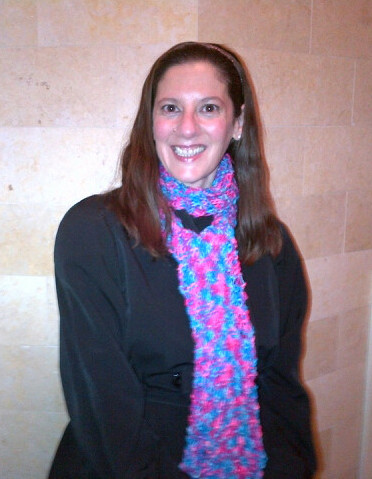By Rev. Francesca Bongiorno Fortunato
Many years ago, when I was first discerning the call to ordained ministry, an older clergywoman mentor introduced me to the word “bivocational.” It was immediately clear to me that the term was just as good a fit for me as “bisexual.” While my call was 100% genuine, it was not all of who I was (and is still not all of who I am) vocationally. Yes, I am “The Reverend,” but I am also still a dancer and dance teacher (okay, so sort of trivocational, though I choose to huddle my dancing and dance teaching under a single umbrella). Then, when you examine the specific type of “Reverend” I am, you’ll find another “bi word.” That word is “Biritual.” That means that I am dually ordained. My first ordination is as an Interfaith Minister. My second is as a priest in the Progressive Episcopal Church. I can (and do) serve in both capacities, wearing my “priest stole” when I celebrate Eucharist for my congregation, and wearing my “Interfaith Minister stole” when officiating weddings, and also when leading children’s worship service at the Unitarian Universalist church where I am now employed (as Director of Religious Education/Children’s Minister.) Are you starting to sense a pattern?
I suspect that there’s something about us bisexuals which makes it really difficult to stuff us into boxes of any sort. I am married to a woman and I love her and plan to spend the rest of my life with her, but I have also been with men (including one to whom I was married for 14 years) and am still capable of being attracted to men. I am a passionate, aspiring follower of Jesus, but I am also a person of Jewish heritage on my mother’s side, and I find inspiration in Jewish teachings and practice as well (celebrating Jewish as well as Christian holidays, reading Jewish books, etc.). This dual heritage and allegiance is why I became an Interfaith Minister first. I love being a clergyperson, and having the joy of sharing people’s spiritual journeys, from Sunday services to weddings, to baptisms, to funerals. And I love dancing and sharing the joy of physical grace (which, to me, is also a form of spiritual grace) with others, whether they are spectators or my students. All of these elements are of my essence, and none can be dispensed with. I truly believe that I will be all of these things until I die (and perhaps beyond, though that raises other spiritual questions).
Recently, I have felt a strong sense of calling to the public ministry of “representing,” as an out bisexual clergywoman in the wider LGBT community. In June of 2014, I marched with the New York Area Bisexual Network on Pride Sunday, wearing my clergy shirt with the white tab collar, and lots of jewelry in the Bi Pride colors. I did that because it was an image that had not often been seen before, and I wanted to let people know that not only do bisexuals most definitely exist, bisexual Christians (and ordained clergy) exist, too.
Responses to my presence on the march were interesting. Blessedly, none were hostile, but there were a few people who seemed confused by what I represented. One asked, “Are you a nun?” (There are still people who aren’t aware that ordained women wear collars.) Another asked, “Don’t you have to be celibate?” Someone else said, “So…you’re an ally.” To which I replied (politely), “I’m not a nun; I’m a priest. Priests in my denomination can be women and we don’t have to be celibate. I have a wife. And I’m not an ally; I’m part of this community. I’m bisexual.”
Though a somewhat tiring experience, the march was something that I was glad to have done (particularly in the way that I did it, in clergy clothes instead of my “civilian” garb) because it was an opportunity to educate and inspire others. There were some who told me that my visibly Christian and ordained presence gave them hope for the future of the churches, and for bisexual youth who might be seeking welcoming spiritual homes. Bisexuals, like most of the early followers of Jesus, are people who have been marginalized, stigmatized, disbelieved and disregarded, but we are just as much made in God’s image as any of God’s other beautiful, blessed children. I want to live my life as an example of that truth and a beacon for those who have been told that their orientation makes them, somehow, less holy than humans of monosexual identity. If any bisexual person, because of something I’ve written, said or done, is able to believe in God’s love for him or her, and embrace a spiritual life, then I will be a minister and a priest indeed, and a dancer with Divine love, as that Divine love is still and always calling me to be.
The Rev. Francesca Bongiorno Fortunato lives in Brooklyn, NY, with her wife Lynn and their feline employers, Alice and Gracie.

